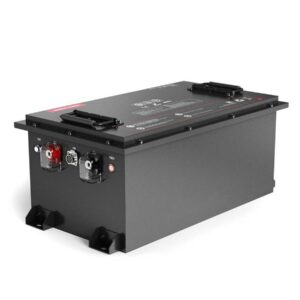
Are there two batteries in a Prius?
Yes, Toyota Prius models use two distinct batteries: a high-voltage hybrid battery (201.6V–300.8V) for propulsion and a 12V auxiliary battery for electronics. The hybrid battery (NiMH or Li-ion) powers the electric motor, while the 12V lead-acid battery starts the gas engine and operates lights/infotainment. Both require periodic maintenance, though failure rates differ significantly—12V batteries often fail first.
Best Replacement 12V Battery Brands for Toyota Prius
Why does a Prius have two batteries?
The dual-battery system separates high-voltage propulsion from low-voltage ancillary systems. This design prevents 300V+ surges from damaging sensitive electronics while enabling energy recovery through regenerative braking. The 12V battery also acts as a failsafe—if the hybrid battery fails, it powers emergency systems.

Hybrid vehicles like the Prius require two batteries due to voltage incompatibility between propulsion and accessory systems. The 12V battery handles traditional automotive loads (ECU, door locks, headlights), while the 201.6V+ traction battery drives the electric motor.
Mechanically, these systems are isolated. A DC-DC converter steps down hybrid battery voltage to charge the 12V battery during operation. Without this setup, engineers would need bulky transformers to power 12V devices directly from the high-voltage system.
Pro Tip: Test your Prius’ 12V battery quarterly—its failure can mimic hybrid battery issues, causing unnecessary panic. For example, a 2018 Prius owner might mistake a dead 12V battery for a faulty hybrid pack, despite the latter typically showing dashboard warnings like “Check Hybrid System.”
| Battery Type | Voltage | Replacement Cost |
|---|---|---|
| 12V Auxiliary | 12V | $150–$400 |
| Hybrid Traction | 201.6V–300.8V | $1,500–$4,500 |
What happens when the 12V Prius battery dies?
A failed 12V battery causes startup failure, warning lights, and accessory malfunctions. Unlike conventional cars, jump-starting a Prius requires connecting cables to specific terminals in the fuse box rather than directly to the 12V battery.
When the 12V battery dies, the Prius can’t initialize its hybrid control systems—even with a fully charged traction battery. You’ll experience symptoms like unresponsive power buttons, flickering dash lights, and inoperative door locks.
Technically, the 12V battery powers the vehicle’s ECU and hybrid system relays. Without it, the car can’t “wake up” the high-voltage battery pack. Jump-starting requires connecting jumper cables to designated jump points in the engine compartment fuse block, as the 12V battery is often buried under trim panels.
Pro Tip: Keep a portable jump starter in your Prius—their compact lithium-ion units (e.g., NOCO GB40) can provide emergency 12V power without another vehicle. For example, a 2015 Prius owner stranded in a parking lot used a jump starter to revive their 12V system in under 2 minutes.
Can you drive a Prius with a dead hybrid battery?
No—the Prius requires its hybrid battery for propulsion. A failed traction battery triggers “Red Triangle of Death” warnings and forces the gas engine to run inefficiently, potentially stranding drivers within miles.
The hybrid battery is integral to the Prius’ powertrain. If it fails, the vehicle enters limp mode, limiting speed to 25 mph or less. The gas engine will struggle to power the car alone because the MG2 (motor/generator) can’t assist without battery support.
Technically, the Prius uses a series-parallel hybrid system. The hybrid battery buffers energy between the engine and electric motors. Without it, the planetary gearset can’t properly distribute torque. Mechanics report cases where drivers ignored warnings and destroyed their transaxles within 50 miles.
How long do Prius batteries typically last?
12V batteries last 3–5 years, while hybrid batteries average 10–15 years or 150,000–200,000 miles. Climate matters—extreme heat accelerates degradation of both batteries.
The 12V lead-acid battery in Prius models faces constant parasitic drains from keyless entry systems and onboard computers. In contrast, hybrid batteries (NiMH/Li-ion) degrade based on charge cycles and thermal management. Toyota’s Battery Control Module balances cell voltages and limits depth-of-discharge to 40-60% for longevity.
In real-world terms, Phoenix drivers might replace hybrid batteries at 8 years due to 120°F+ summers, while Seattle owners could see 15+ years. A 2012 Prius taxi in New York logged 300,000 miles on its original NiMH pack thanks to regular highway driving that kept the battery in optimal temperature ranges.
| Factor | 12V Battery Impact | Hybrid Battery Impact |
|---|---|---|
| Temperature | High heat increases corrosion | Heat accelerates SEI layer growth |
| Usage | Frequent short trips drain charge | Deep discharges reduce cycle count |
Battery Expert Insight
FAQs
Can I replace a Prius hybrid battery myself?
Not recommended—high-voltage systems require certified technicians. Improper handling risks electrocution and voids Toyota’s hybrid component warranty.
Do Prius Prime models have three batteries?
No—they still use two: the 12V auxiliary and a larger 8.8 kWh Li-ion traction battery for extended EV range.
Are aftermarket Prius batteries reliable?
Some reconditioned packs work, but avoid “bargain” $800 units—they often use mismatched cells causing premature failure. Opt for OEM or certified rebuilt batteries.
